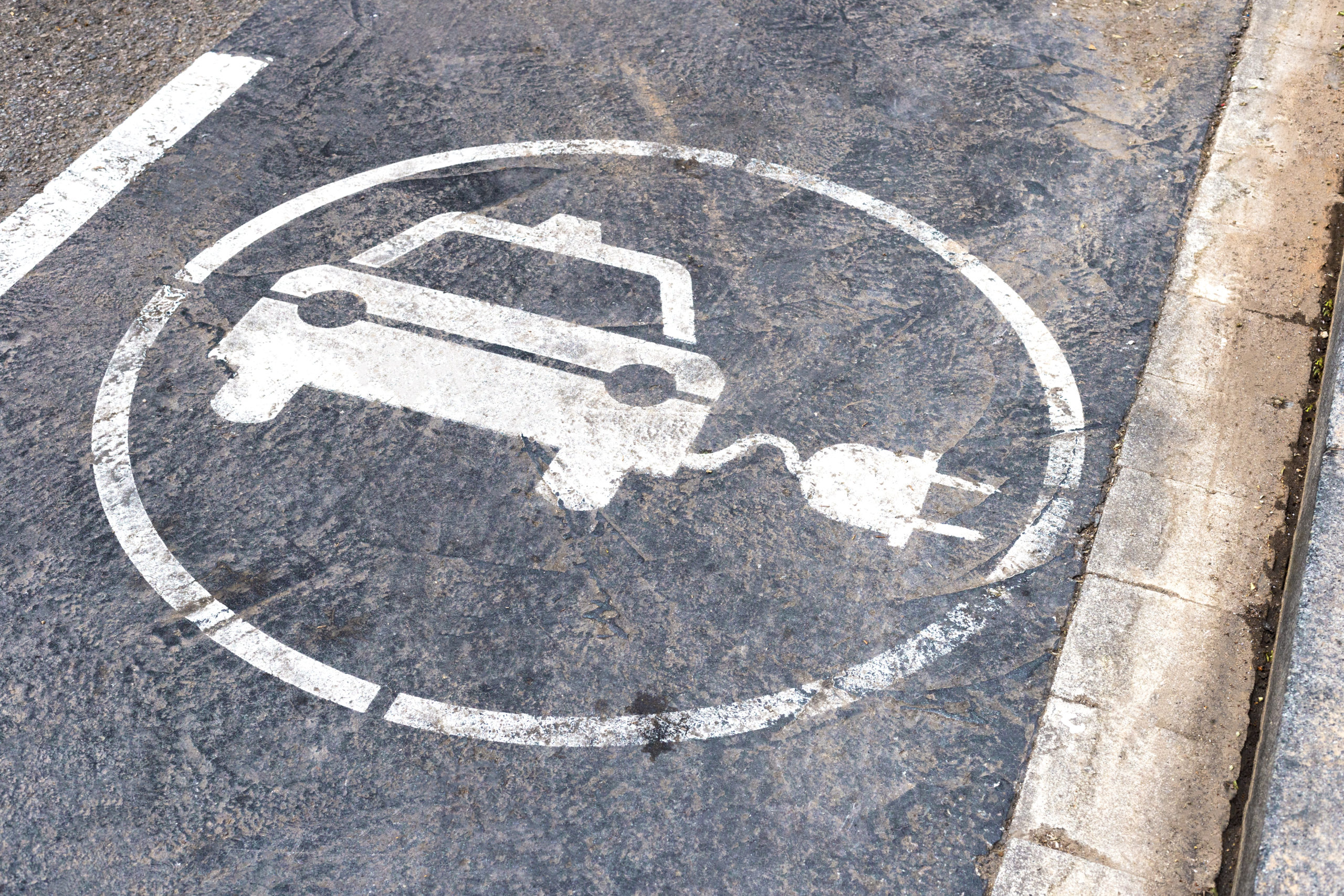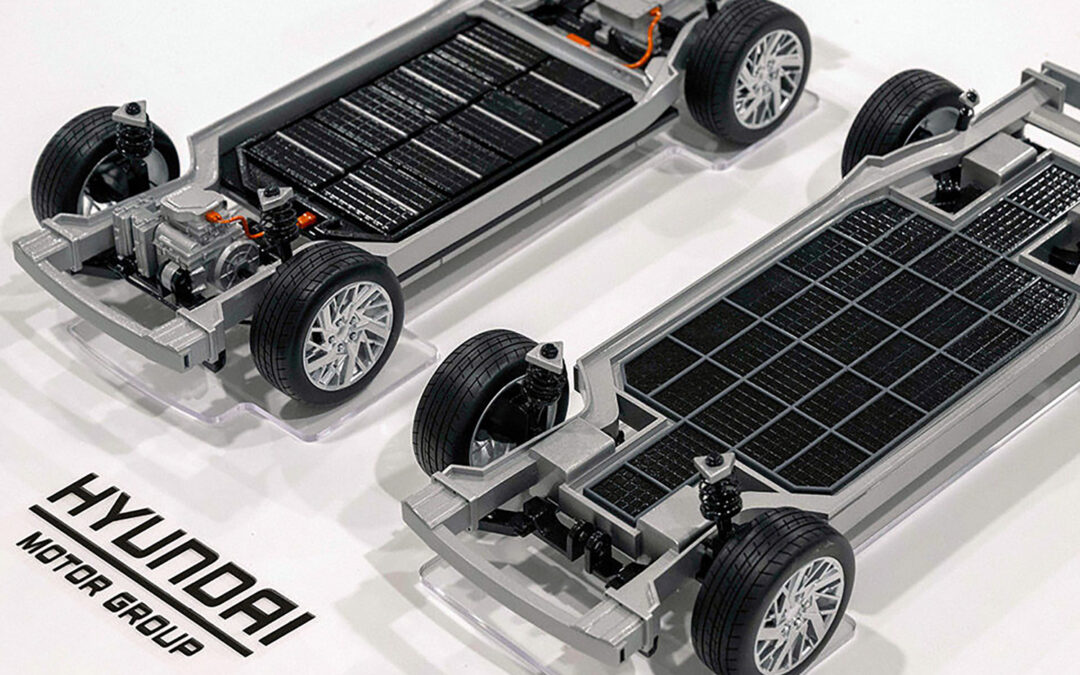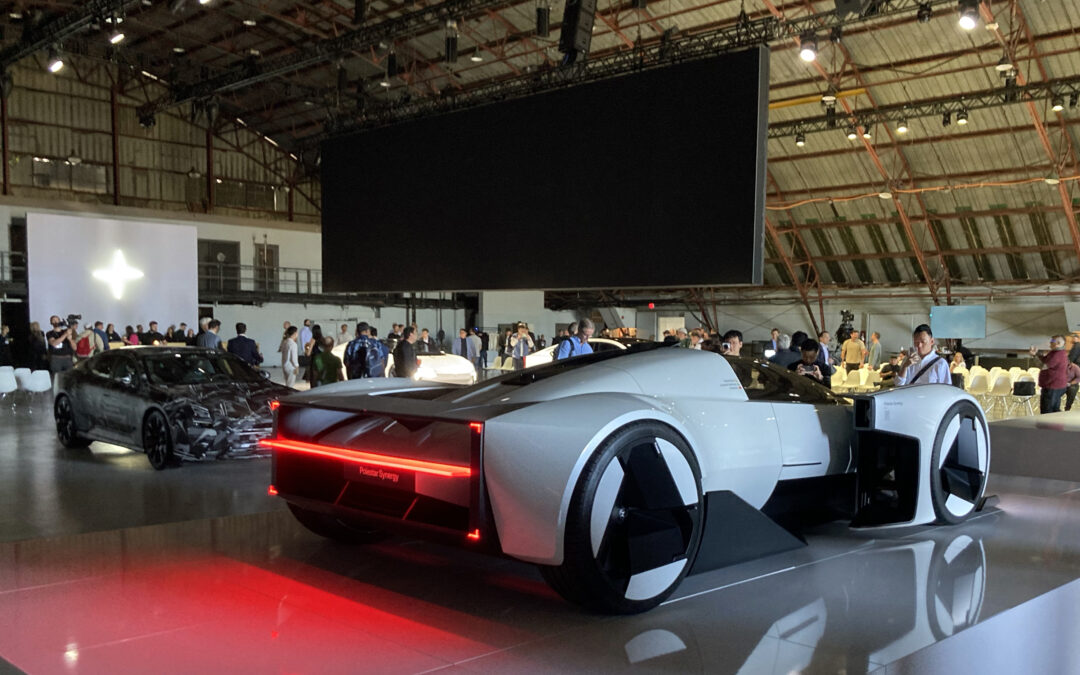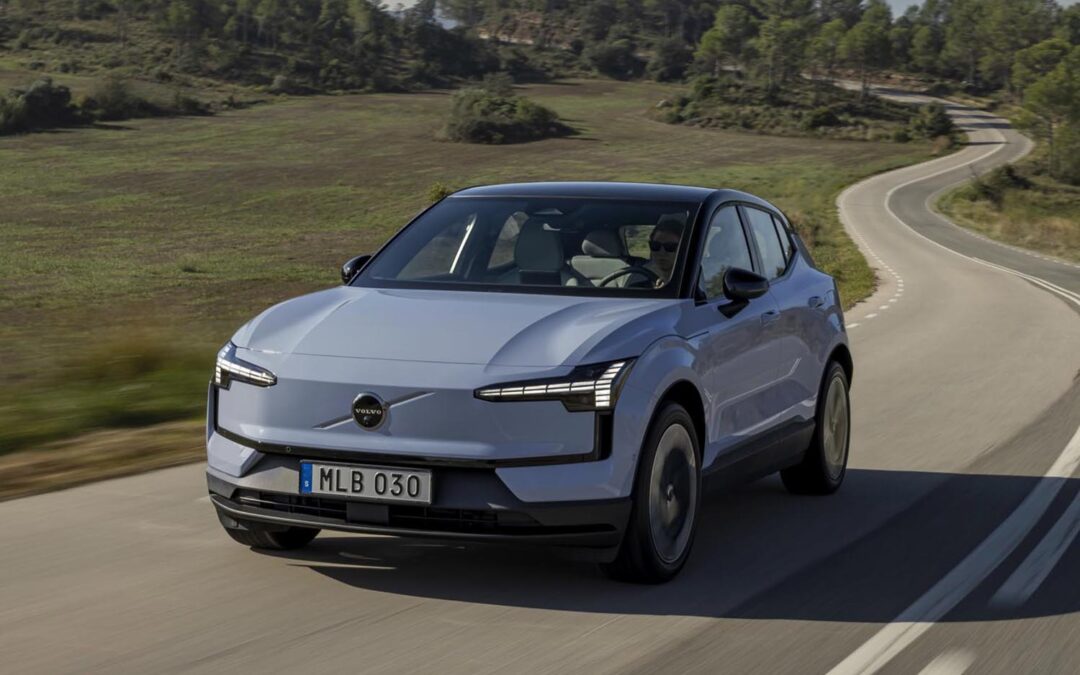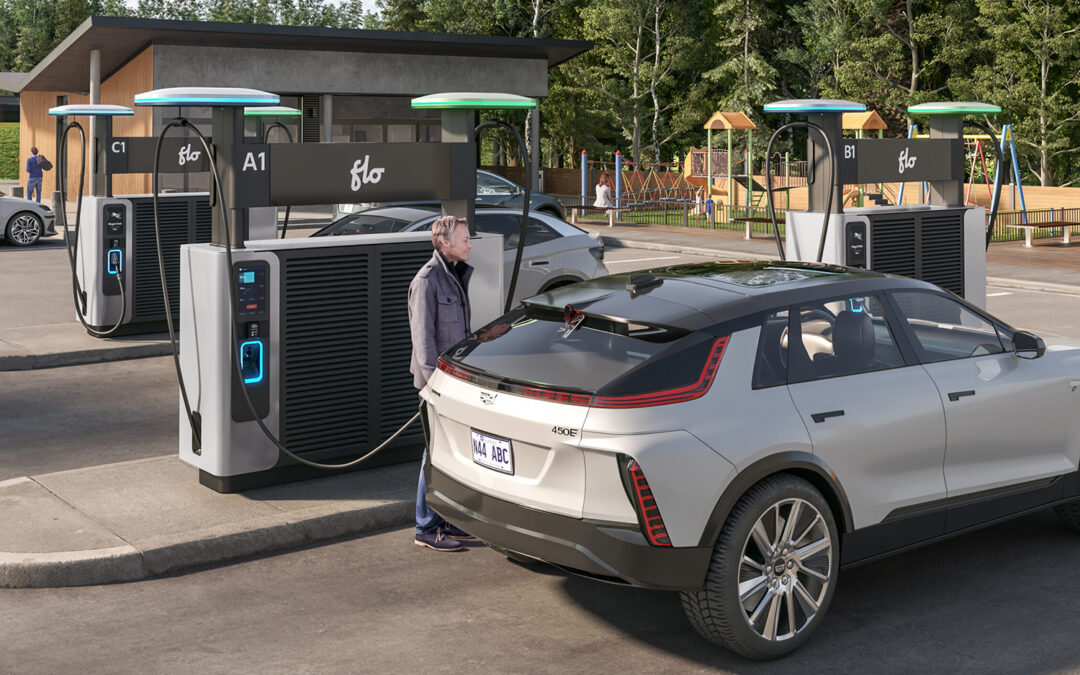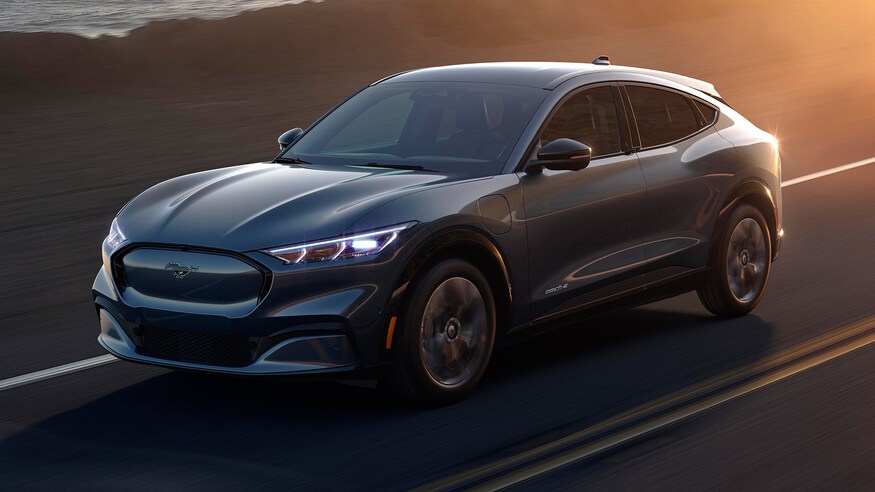A recent study by Clean Energy Canada has concluded that total ownership costs for electric vehicles are cheaper than their internal combustion-engined counterparts.
Titled The True Cost, the report incorporates the total cost of ownership, including depreciation, fuel costs, servicing and maintenance, and taxes and insurance, across a sub-section of the best-selling electric vehicles in Canada, averaging the costs across eight years of ownership and 20,000 km of annual driving distance. By the CEC’s own admission, these calculations were “relatively conservative,” and thus cannot be considered a definitive overview.
Nevertheless, of the vehicles analyzed, the results show “without exception” that the electric version of each car was often “significantly” cheaper than their ICE equivalent.
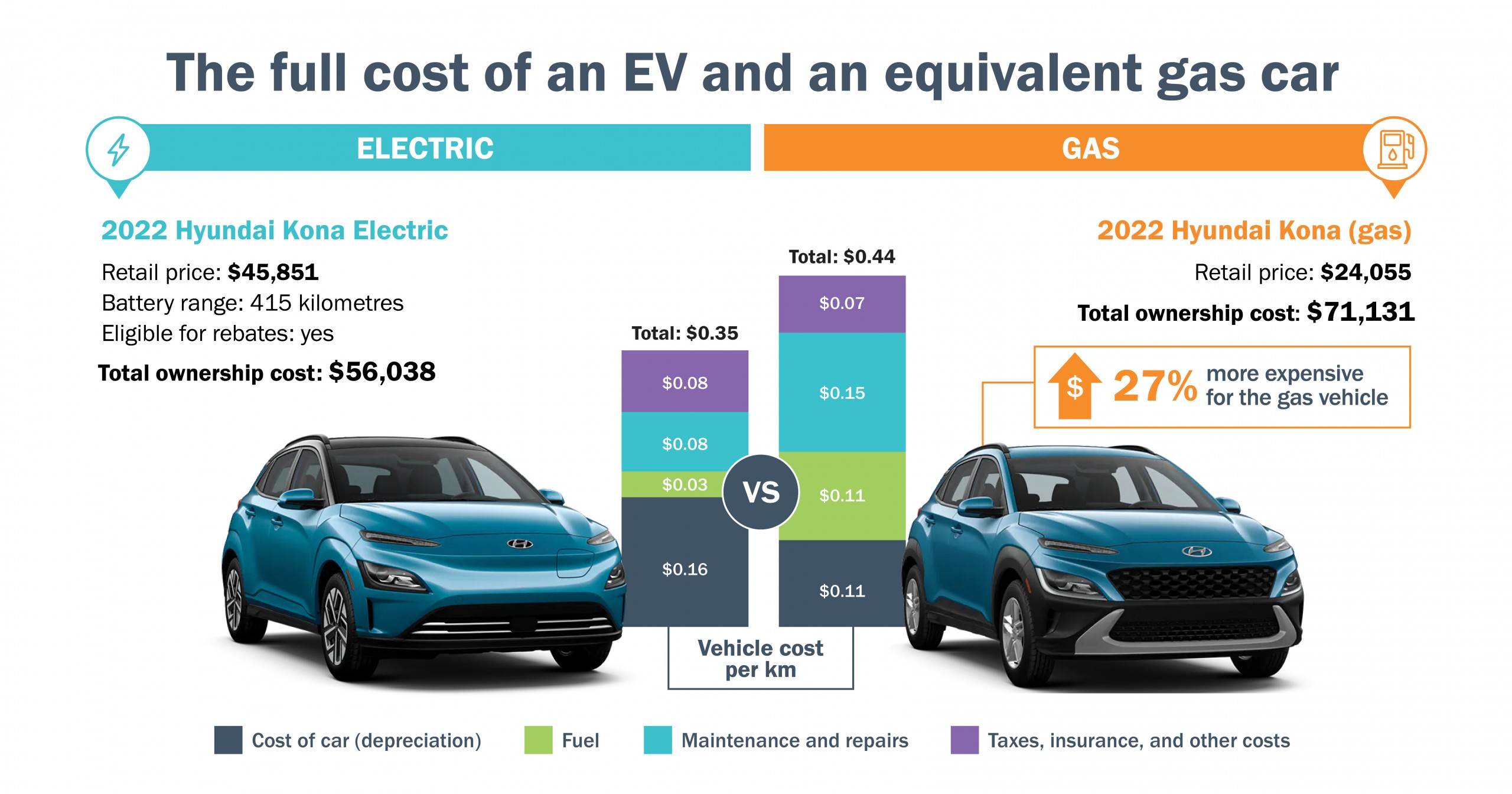
Clean Energy Canada data
Among the most notable examples is the Hyundai Kona, Canada’s second best-selling EV in 2021 behind the Tesla Model 3. Despite the Kona’s ICE version having a lower MSRP, lifetime prices for the Kona EV come to $56,000 compared with $71,100 for the Kona ICE.
Given the recent spike in fuel prices, this $15K difference is widened yet further when the average is reset to $2 per litre, the total cost for the Kona ICE coming out at $79,700. That’s a staggering $24K more than the EV, the same, incidentally, as the “pared-down” Volkswagen ID.Life concept which previewed affordable EV ownership in September last year.
The closest comparison between EV and ICE models was Ford’s new F-150 Lightning, which ended up being just $2,700 cheaper than the V6-powered F-150 XLT SuperCrew 4×4, due in part to the former’s higher price tag.
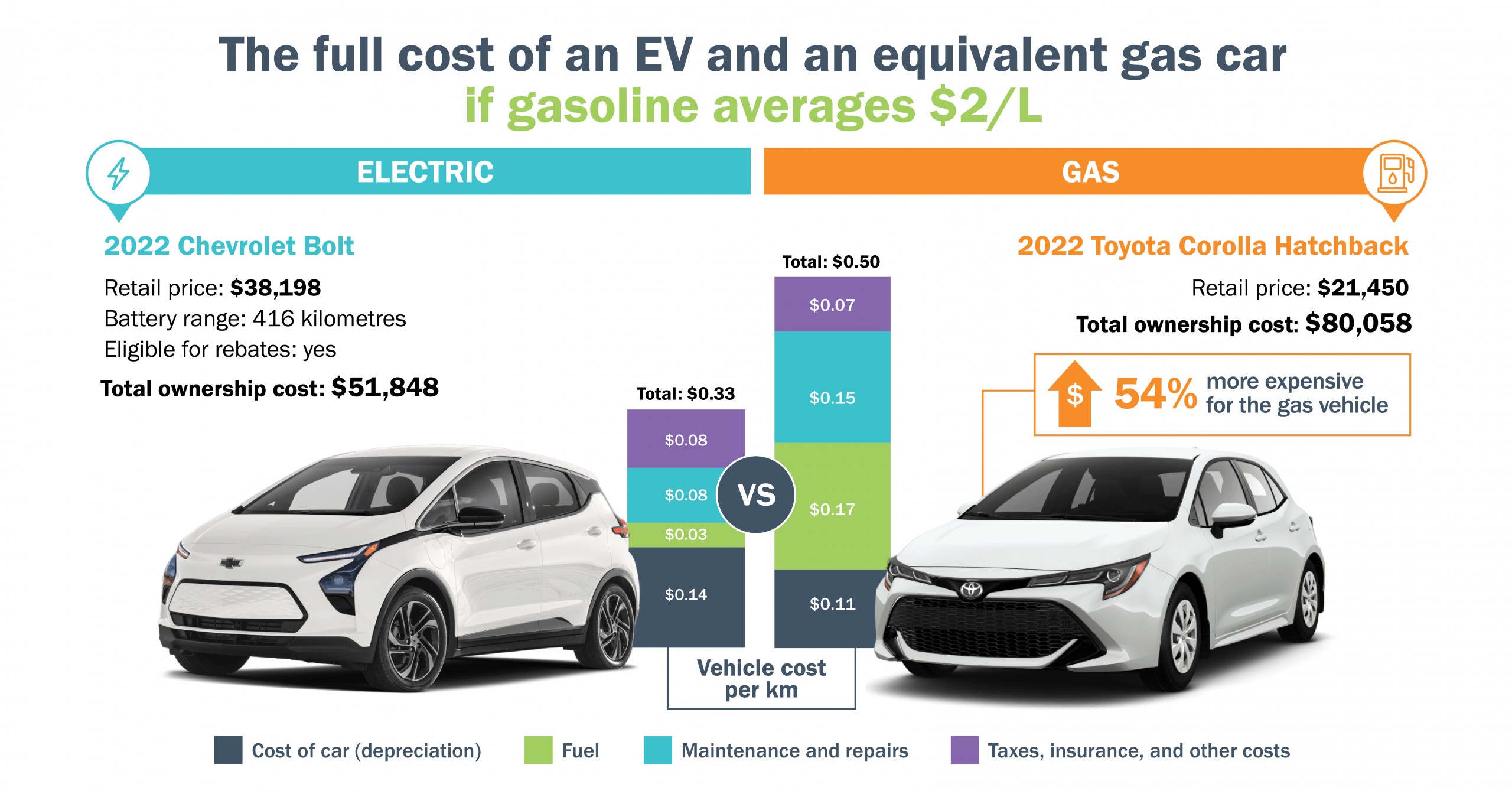
Clean Energy Canada data
The report also broke down the cost of charging an EV in each province against the average $1.35 per litre cost of brimming an ICE tank. A Chevrolet Bolt with a 416 km range was used to calculate the former while a frugal Toyota Corolla, Canada’s most popular “budget-friendly car”, was used to discover the latter. Despite the significant difference in charging costs between the provinces – to fully charge the Bolt cost just $5.46 (8.4¢ per kWh) in Québec, but $9.62 (14.8¢ per kWh) in Ontario, and as much larger $12.55 (19.3¢) and #12.61 (19.4¢) in Saskatchewan and Prince Edward Island – the report still found that the ICE Corolla could prove 58 per cent more expensive over time.
Fittingly, an accompanying CEC poll from 20-25 January found that just under 80 per cent of the “random sample” of 1,500 Canadians quizzed were open to the idea of owning an EV (in fairness, 60 per cent of these were either ‘interested in considering,’ or ‘hesitant but open to it’). Despite these findings, CEC states that an EV’s traditional higher MSRP compared with ICE or hybrid models is a common sticking point for prospective owners considering making the jump. As well as additional required expenditure, like a home charger, the difference in potential EV rebates across the country is another detriment. The federal government offers up to $5,000 to owners of new EV base models under $45,000 across all 10 provinces and three territories. Of these though, only seven – the Yukon, British Columbia, Québec, Newfoundland and Labrador, Prince Edward Island, Nova Scotia, and New Brunswick – also receive provincial rebates providing up to at least $3,000 more. The highest is Québec, which can offer as much as $13,000.
